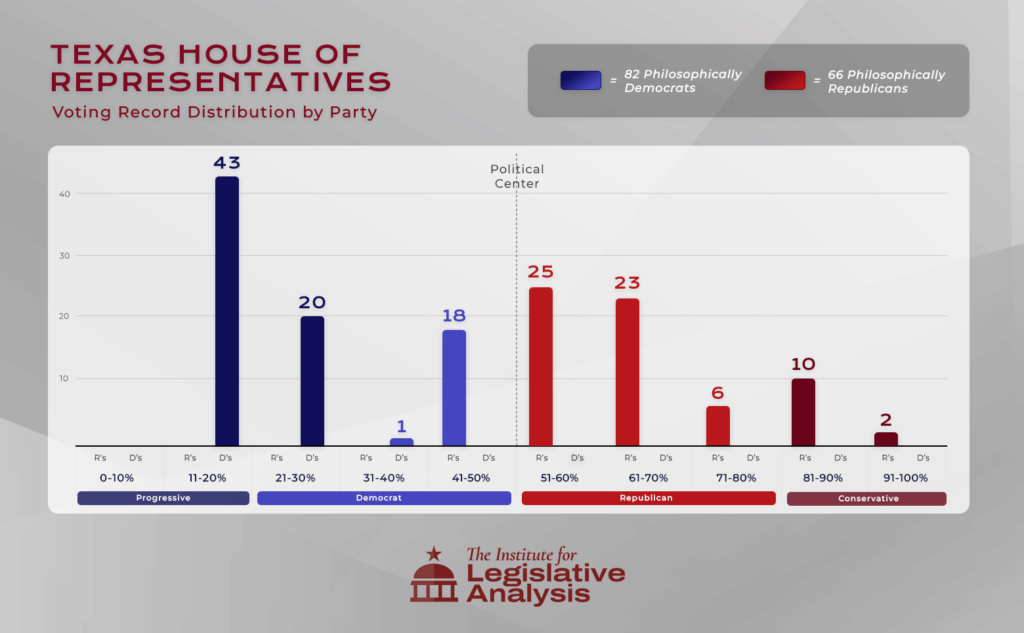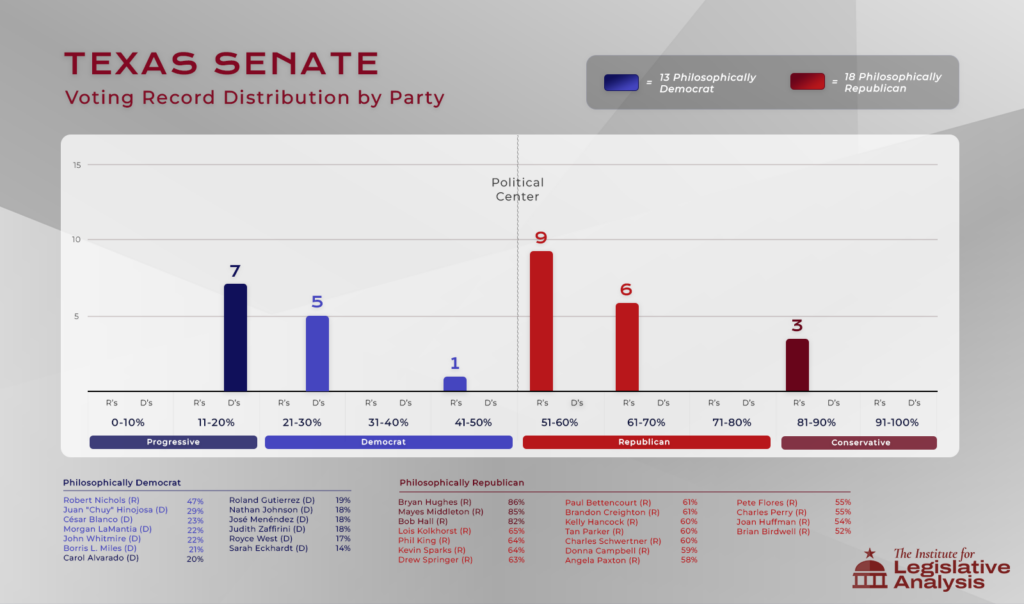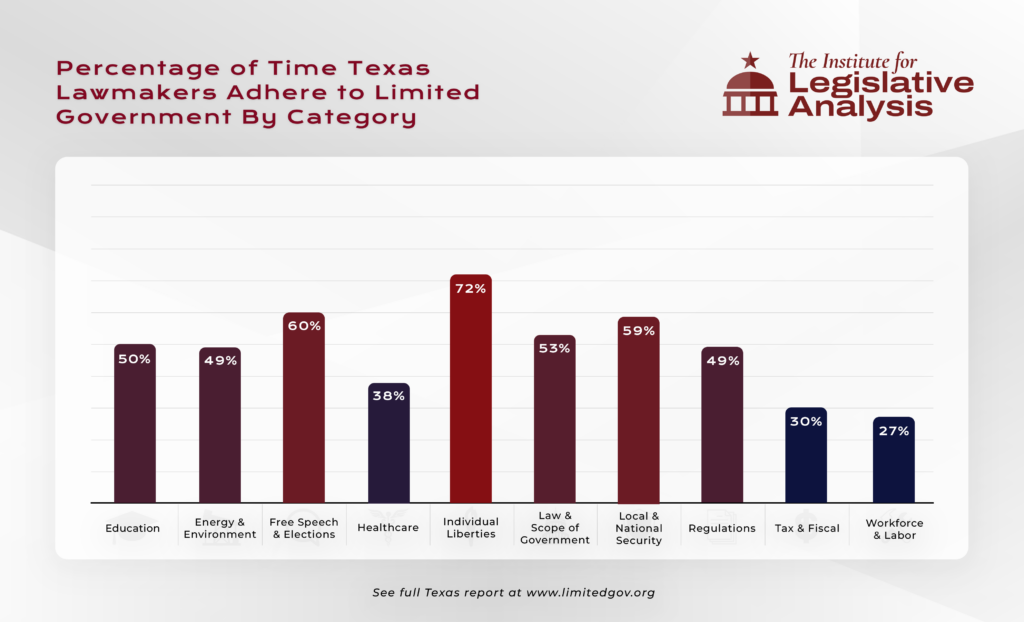Just Released Data: Democrats Control Texas House – Republicans Control Texas Senate
Most Comprehensive Analysis Ever Conducted on Texas finds Numerous Lawmakers Engaging in Fraudulent Party Identification
WASHINGTON, DC – A just released study on the Texas Legislature has found Texas lawmakers are incorrectly aligning themselves with political parties that do not match their values based on their voting records. The findings are a result of the most comprehensive vote record analysis ever performed on Texas – 20,174 lawmaker votes and 217 in-depth policy analyses – utilizing the limited government principles of the U.S. Constitution as the sole methodological tool. The study, which also deployed an advanced weighting and policy categorization system, was released by the Institute for Legislative Analysis (ILA) a national public policy research and data hub.
The report reassigned each lawmaker to the correct political party that matches their philosophical values based upon their votes. The data reveals that philosophically Democratic lawmakers control the Texas House (83 Democrats to 67 Republicans), and philosophically Republican lawmakers control the Texas Senate (18 Republicans to 13 Democrats). All lawmakers are placed on a 0 to 100 political ideology scale, with scores of “0% – 50%” equating a Democratic political philosophy and scores of “51% – 100%” marking a Republican political philosophy.
The ILA applies the same methodology to every state it researches. In most states including California, Florida, Ohio, Tennessee and Pennsylvania not a single self-defined Republican scored below a 60%. However, Texas is one of the few states where a significant number of lawmakers have been found to engage in fraudulent party identification, which has also been widely reported in Wyoming and Idaho.
“Unfortunately for Texans, their state legislature has largely abandoned the principles of limited government,” said Ryan McGowan, CEO of the Institute for Legislative Analysis. “While Texas is often touted as among the ranks of Florida and Tennessee – states generally considered conservative – the data prove this is clearly not the case.”
The ILA’s enormous dataset allows each state’s overall strengths and weaknesses on policy to be pinpointed. The report found that Texas lawmakers adhered most closely to the limited government principles of the U.S. Constitution when it came to protecting individual liberties (72%) but performed very poorly on adhering to limited government on tax and fiscal policy (30%) and workforce and labor (27%). The ILA is both non-partisan in its application of methodology, therefore there were cases where Democrats were found to be more closely aligned with the Constitution than Republicans and vice-versa. The ILA does not include “political votes” in its analyses (such as the impeachment of AG Ken Paxton) nor “cultural issues” (such as abortion or transgender sports) unless there is a direct Constitutional correlation.
The Institute for Legislative Analysis serves as the public policy research and data hub for lawmakers and right-of-center political organizations. In addition to its state legislative analyses, the ILA publishes the most comprehensive and in-depth vote record analysis of Congress. Organizations interested in utilizing the ILA platform or data for their own scorecard construction can contact the ILA external affairs team through the information below.
###
Institute for Legislative Analysis
press@limitedgov.org – 300 Independence Ave SE Washington, DC 20003 – (301-542-2399)




